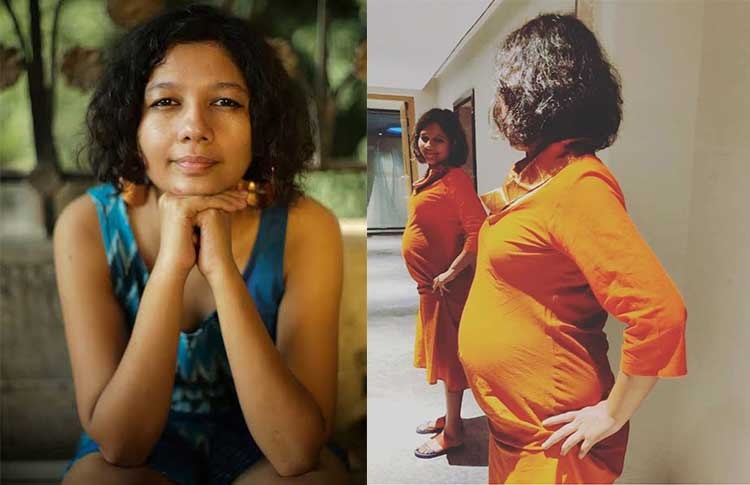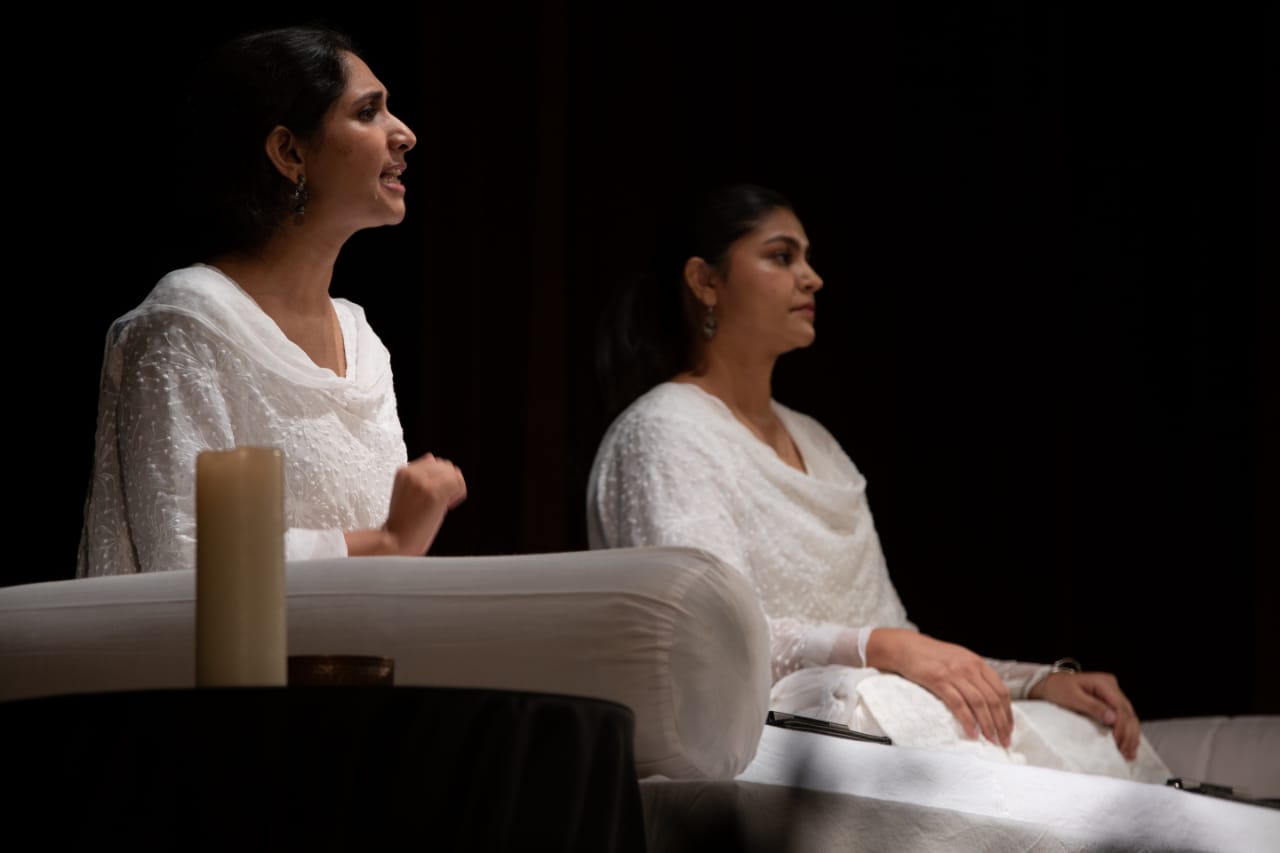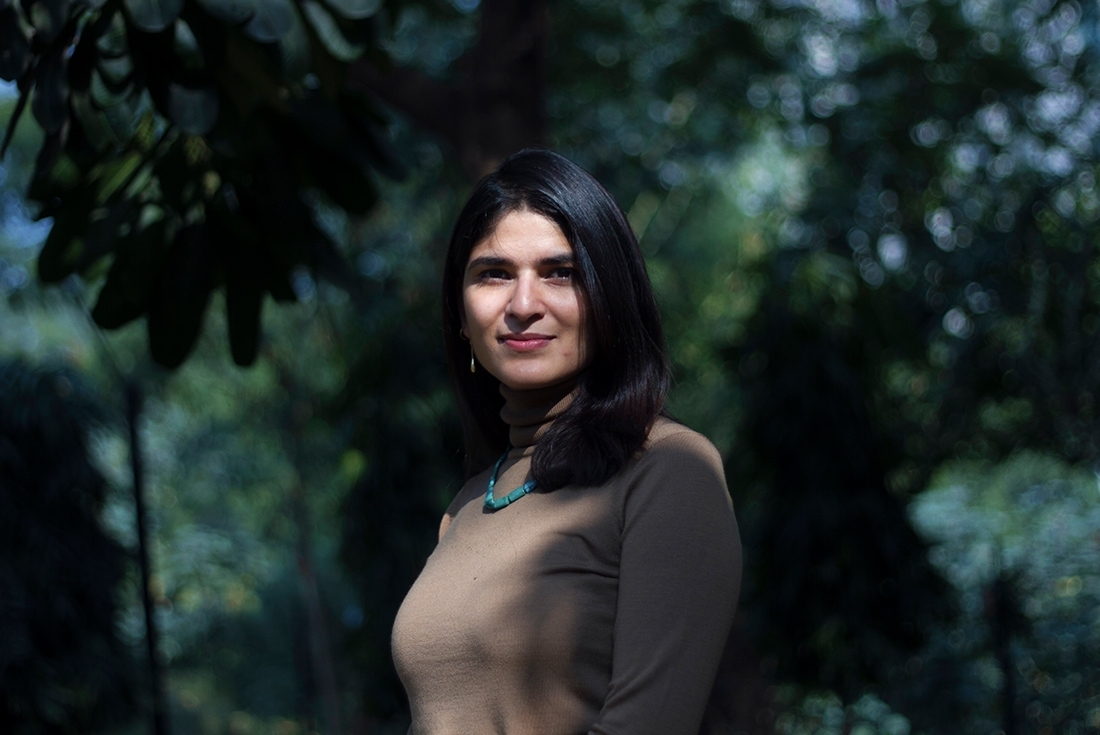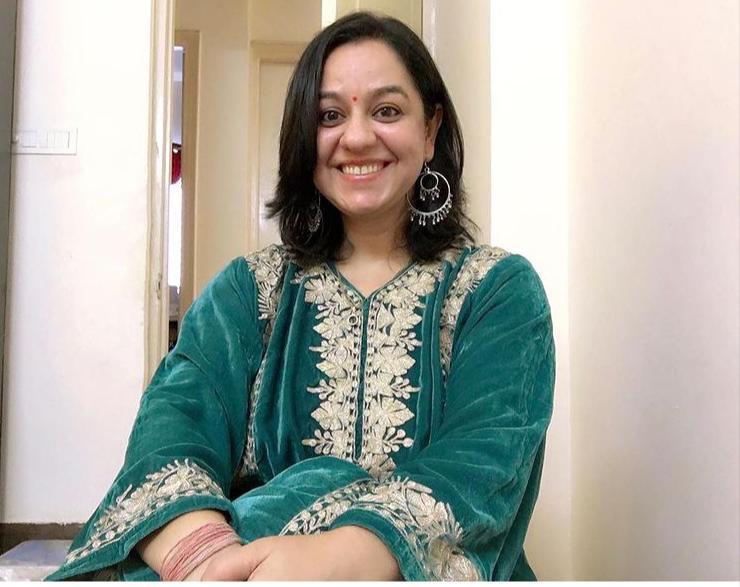Writer Nandita Godbole Talks To IWB About Curry Cravings, Comfort Foods, & Denial
- IWB Post
- August 9, 2017
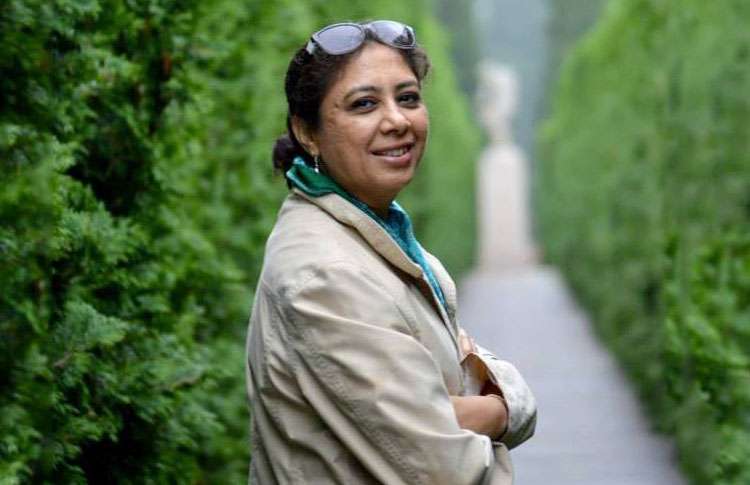
Update: Atlanta-based Nandita Godbole is an Indian-origin food writer and cookbook author with readers all over the globe.
Nandita’s Book 1 of ‘Not For You: Family Narratives of Denial & Comfort Foods,’ is now published. Having received massive pre-production response from the readers, through ‘Not For You’ Nandita explores the lives of people in the post-independence era through the food. represents a hybrid of two popular genres: historical fiction and ethnic
Book 2 of ‘Not For You’ will be released in December which will take forward the narration from Book 1 and will depict the life of the families in Cosmopolitan India. In the second book, Nandita will also take the readers to see the U.S. through the eyes of a young woman who is legal, Indian immigrant. The books shall reflect upon the family meals as the measure of their comfort and how it helps them to develop a sense of home and belonging in any given situation.
‘Not For You’ also offers its readers a fantastic opportunity by inviting them to
recreate these easy and rustic comfort meals in their own homes.
‘Not For You: Family Narratives of Denial & Comfort Foods,’ Book 1 is now available on Kindle (here), iBook (here), and Google Play (here).
(You may also read IWB’s full interview with Nandita Godbole below.)
A few days back, our boss Ana showed me one article and said, ‘Just give this article a read and tell me how you find it.” Confused I began reading (the title), but my mind wasn’t at peace and I kept thinking, ‘Why did she come specifically to tell me to read an article?’
Even after 2 minutes, still stuck at the title, ‘Of Brown Voices And Apple Pie: An Indian-American Thanksgiving dinner after Trump…,’ I assumed that it’s just another article on how Trump has affected the lives of Americans.
Just 2 lines after, I realized that the article wasn’t about the melancholy of Trump’s victory, but so much more! From fitting into the ‘white’ environment to the importance of rooting one’s child to its culture, this article was a roller coaster ride.
“OMG! I loved it!”
And, that’s how we decided to track down the author of this article. As it turned out, Nandita Godbole, is a cook, an ardent advocate of the Indian cuisine, and a writer.
Originally from Mumbai, Nandita has been living in The U.S. with her family for over 20 years now. And, it was while living in the U.S., she realized how little people know about the Indian cuisine which led her to set up a lifestyle brand Curry Cravings.
She has also authored many cookbooks like Roti: Easy Indian Breads & Sides and Crack The Code: Cook Any Indian Meal with Confidence. Nandita’s latest book, Not For You: Family Narratives of Denial & Comfort Foods is inspired by real life events in her family.
In a phone interview with us, Nandita talked about being a Brown family, her connection with Indian food, the legacies she wants to pass on to her daughter, and much more.
Me: Which Indian Dish describes your personality the best?
Nandita: *giggles* When you sent me the questions before the interview, all of us were pleasantly surprised by this very first question. Everyone had different opinions. My husband said that I’m a Gujarati Kadhi, a perfect blend of sweet and savory. One of my friends said that I am a Bhelpuri, a quirky mix of everything, and another said that Aloo (potato) suits my personality the best. Well, I was a bit offended by the comparison, but then my friend cleared and said that you are an aloo because you can fit into everything. *giggles*
However, if you ask me, I’ll say that I’m a Masala Chai. It’s just one of a kind and can never be like someone else’s.
Wow! After hearing all these descriptions, even I began thinking what I am. Golgappa, definitely Golgappa! *no explanation needed* #LoveForGolgappa
Me: Who and what inspires your books on Indian Cuisine?
Nandita: My 13-year-old daughter is my biggest inspiration for writing. We have a very small family in India as well as in the U.S. So, it scares me that how will I teach and pass on my living culture and traditions to my daughter. What you get in the restaurants here doesn’t capture the essence of Indian food. These books will be helpful for my daughter when she grows up. All my books do not only have recipes but much more than that. While cooking any kind of food, you need to build the connection and that’s what I try to do through my books.
Me: What’s the one thing that makes Indian food exotic to the world?
Nandita: There are so many spices, and so many tricks and so many variations to the same recipe that Indian cuisine will always remain exotic to the world. In my book, Crack the code, I have only given limited recipes, but I have shared so many variations of them. Like if you change this ingredient, it can become this, or if you just change the method of cooking, it will change the recipe, etc.
*humming* I am feeling so exotic…
Me: In your write-up, Brown Voices And Apple Pie, you have spoken about the opinions of brown people. Which question irks the brown you the most?
Nandita: What bothers me the most is that the ‘white grain’ and even the ‘black community’ make a lot of assumptions about us. It doesn’t matter if we are first generation or third generation brown living in the U.S., or have dual citizenship, they have some perceptions about us when there’s no need of it!
Regarding the Indian food, the biggest pet peeve, is when people come to me and says, ‘I heard you write about Indian food. Does your book have a recipe of Indian Curry?”
And, I’m like is the marinara sauce the Italian curry?
All dishes you call Indian are not a curry, for God’s sake!
Me: One opinion about your writing that changed your opinion.
Nandita: Well, I have penned down my personal experiences a few times in the past, too! But, being an Indian girl, I was always conditioned to not talk about the private life. And, if it involves any form of abuse then we are always told that it should never be spoken of and should always be hidden.
So, I had to muster much courage before writing about one such incident and it was written with the intent that my daughter doesn’t suffer because of it and I could protect her.
However, the backlash I got for it made me realize a lot of things. There’s a certain way one is expected to share their views. While someone is encroaching a woman’s space, yet we are told that “A good Indian girl do not talk about these things.”
Why do we have to even ask a woman to be quiet or docile?
I understood that many people do not talk about their problems because they don’t want to get judged. However, people who supported my point of view and me, made me realize that many people won’t understand your problem till you talk about it.
I don’t believe in the old saying, ‘if something is bothering you, then there’s something wrong with you.’ I strongly feel that if something is worrying you so much, then there’s something very very wrong with the situation you are in. YOUR OPINION IS VALID!
On point, Nandita! *claps*
Me: Your upcoming book is titled, Not For You: Family Narratives of Denial & Comfort Foods. Share the story behind this title.
Nandita: Oh, I had a lot of trouble while settling on the title! We have a complex family history. My grandfather had a love marriage, and my grandmother was raised in a Jewish family. So, she converted to Hinduism to marry my grandfather. As my father and his siblings grew up in a family with mixed faiths, even in food, there were so many varieties, etc. However, they had a very rough childhood as our extended family boycotted them and they had no cousins to play with or go to on festivals or special occasions.
I was exasperated when I heard these stories. In the later years, my father suffered from Parkinson’s and had difficulty remembering, but there were many moments of clarity, too. All these conversations set the tone for the book.
While writing the book, I talked to him at length about the kind of food they ate, the way they celebrated festivals, etc. However, just a week after he got really sick and passed away.
I was confused whether I should keep the title or change it. But, in his honor, I decided to keep it!
This book needed to be written so it could become a lesson that how a person’s life is affected when he’s told again and again, ‘You are not worth of this, and this, or that.’
Me: So, is this your family narrative of denial?
Nandita: Yes! It revolves around the unfortunate fact that how families can covertly and overtly remove you from the traditions of the family just because you are not like them and do not think the same way.
The book is also a reminder that let’s not do the same to our younger generation!
Me: What is your advice to eat out the stress in the right way?
Nandita: One should not see food as a thing to handle grief as it would be just counter-productive. And, I would advise them to change their focus. Stress-eating is common across the world, especially, amongst the women. But, they should understand that it only provides instant gratification and won’t do anything good for the health. Instead, going out and running will actually beat the stress.
Me: Like you said, stress-eating is common amongst women. What’s the reason behind this?
Nandita: As stereotypical as it sounds, but I think that we, women, have easier access to the food and there’s a natural connection that we have with it. Also, there are so many restrictions that the society puts on the women that stress-eating becomes a way of rebellion. For example, as the ‘good girls’ we CAN NEVER get late in packing our husband’s lunch, or we CANNOT get late in setting the dinner table, and we CANNOT make up excuses for all this. So, it is just a way of our rebellion to what is accessible to the women.
OMG! I’m a depressed and emotional eater myself, but I never saw it this way. Mind=Blown
Me: How to use the food for the family bond?
Nandita: Find a way to not define the roles and let all the family members share the responsibilities. Engaging your children while cooking opens up the space for interaction and conversation with them.
Me: In India, women are confined to the kitchen for most of their lives. Suggest few ways to liberate them?
Nandita: For the past seven years, my husband and I are living in different states, due to his work. I am in Atlanta and he’s in California, and we only meet for two days, every month. There are people who tell me, ‘Arey tumhe apne pati ka khayal rakhna chahiye. Uske liye khana kaun banayega…” It irks me so much. I am not a service, or a maid, or a cook! My husband and I have always shared every responsibility. And, that’s why I think a partnership is important.
Another issue is that women are considered subservient and are deemed the nurturers of the family. While being a nurturer may not be a bad thing to be, but, sets the wrong example when it becomes her sole identity and role.
Imagine, if you are the only one nourishing the family, and somehow you are removed from the scenario, then your home would not be able to function and this very thing would prove as a downfall.
Me: ‘My table has room for both Indian and American food but not for associated judgments, biases or prejudices.’ What other things your dinner table doesn’t allow?
Nandita: Politics, as it churns out a lot of negative emotions from the people and dinner table is a place to eat and enjoy your food with happy conversations!
P.S. To know more about Nandita Godbole and her books, you may visit her website, here.
Photo Source: Nandita Godbole Facebook
(The interview part of the article was first published in February, 2017.)
- 0
- 0




